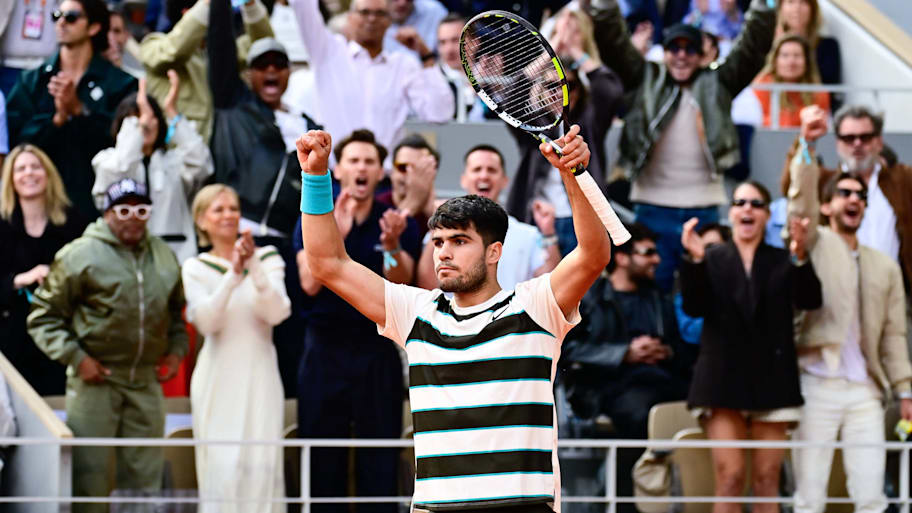The 2025 French Open kicked off with a toast to Rafael Nadal. Yes, for his 14 Roland Garros titles, but more importantly for his persistence, passion and physicality. On the last day of this event, another Spaniard offered the highest expression of these tennis virtues. Carlos Alcaraz, just 22 years old, defended his title in Paris with a belly-of-the-beast, five-set, instant-classic win over Italy’s Jannik Sinner.
One or the other of these two players, ranked No. 1 and No. 2, has won every major since 2023, but before today they had never faced each other in a major final. This much-anticipated encounter lived up to its billing, validated their positions atop the sport—and on opposite sides of the draw—and furnished a breathtaking chapter in what one hopes and assumes is a long compendium. For 20 years, we had the Big Three, now, we have the Big Two—and this match outlined the virtues and the contrasts.
The 2025 French Open final began midafternoon amid calm circumstances, which seemed to foreshadow the result. Sinner, measured and even-keeled in the extreme, was simply undeterred. Coming in he had won 18 consecutive sets at Roland Garros and the number expanded to 20 as he played more consistently and solidly against his up-and-down opponent. Alcaraz stirred the crowd by winning the third set with some of his typical theatricality and shotmaking. But in the fourth, Sinner scored a critical break of serve and the sun was still high in the sky when he had three match points on Alcaraz’s serve. Any one of those would have won him his first Roland Garros title, would’ve leveled this rivalry (each player with four major titles), and would've solidified his top ranking, but on each of the three occasions he missed. Rattled by the squandered opportunity—one senses he already had done the mental accounting—he then lost his subsequent service game. By the time Alcaraz had won the fourth set in a stirring tiebreak, again coming back from a deficit, there was a feeling that the proverbial floodgates had opened and the deluge had arrived. In the fifth set, Alcaraz scored first and weathered a second wind from Sinner, before dominating the deciding tiebreaker, 10–2.
This was his second Roland Garros title, and his fifth major overall, but perhaps the most dramatic. For a player of such flashy shotmaking, and stunning athleticism, he leavens it with drop shots—and that may have been the more potent weapon than any hellfire forehands or backhands. Sinner was playing in just his third event of the year, having served out a 90-day suspension related to doping. While he had been practicing on clay, practicing isn’t the same as competitive matches and the difference today may have been his lack of match play. By the fifth set, drained of force, his physicality withered, he began cramping and was visibly struggling to get out of the corners. Alcaraz pounced, sadistically using that drop shot, running his opponent corner to corner like some sort of deranged stage manager, and prevailed 4–6, 6–7, 6–4, 7–6, 7–6, in five hours and 29 minutes.
Sinner will undoubtedly be disappointed by this result, coming so vanishingly close to closing the deal, but big picture, ought to be pleased with his performance. In just his fourth major final, he came within a point of taking the title, this on a surface that is hardly his best.
This moment, however, belongs to King Carlos, who, apart from winning the French Open, won countless fans with another box office performance. He pushes his head-to-head record with his rival to 8–4, perhaps more importantly, he has now won five of these matches in a row. But tennis gods give and receive, and let us not forget that Wimbledon starts in 21 days. If these two end up in another major final we will all be better for it. But in Paris, King Carlos proved a worthy successor to the last Spaniard to hijack this event.
More French Open on Sports Illustrated
This article was originally published on www.si.com as Carlos Alcaraz Continues Reign As King of Clay With French Open Title Defense .
